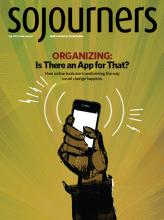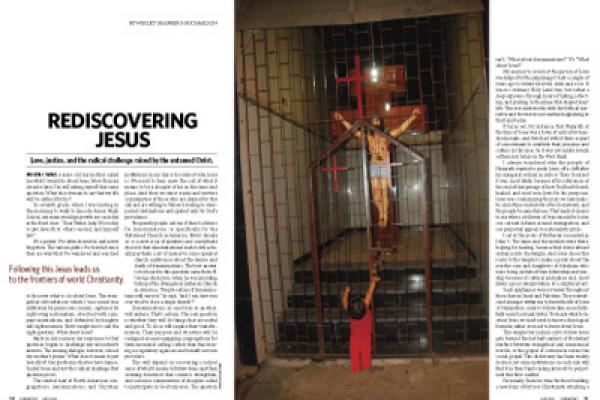When I was 4 years old my mother asked me what I would do about Jesus. More than six decades later, I'm still asking myself that same question. What does it mean to say that my life will be defined by his?
In seventh grade, when I was leaving in the morning to walk to Lincoln Junior High School, my mom would pray with me each day at the front door: "Dear Father, help Wes today to put Jesus first, others second, and himself last."
It's a prayer I've often dissected, and never forgotten. The various paths I've traveled since then are ways that I've wandered and searched to discover what to do about Jesus. The evangelical subculture in which I was raised was infiltrated by pernicious racism, captured by right-wing nationalism, absorbed with rampant materialism, and defended by haughty self-righteousness. But it taught me to ask the right question. What about Jesus?
Early in my journey, my responses to that question began to challenge my subculture's answers. The ensuing dialogue, however, echoed my mother's prayer: What does it mean to put Jesus first? Our problem is that we have domesticated Jesus and lost the radical challenge that question poses.
The central task of North American congregations, denominations, and Christian institutions in our day is to resurrect who Jesus is. We need to hear anew the call of what it means to be a disciple of his in this time and place. And then we must create and nurture communities of those who are claimed by this call and are willing to follow, traveling to unexpected destinations anticipated only by God's providence.
Read the Full Article

